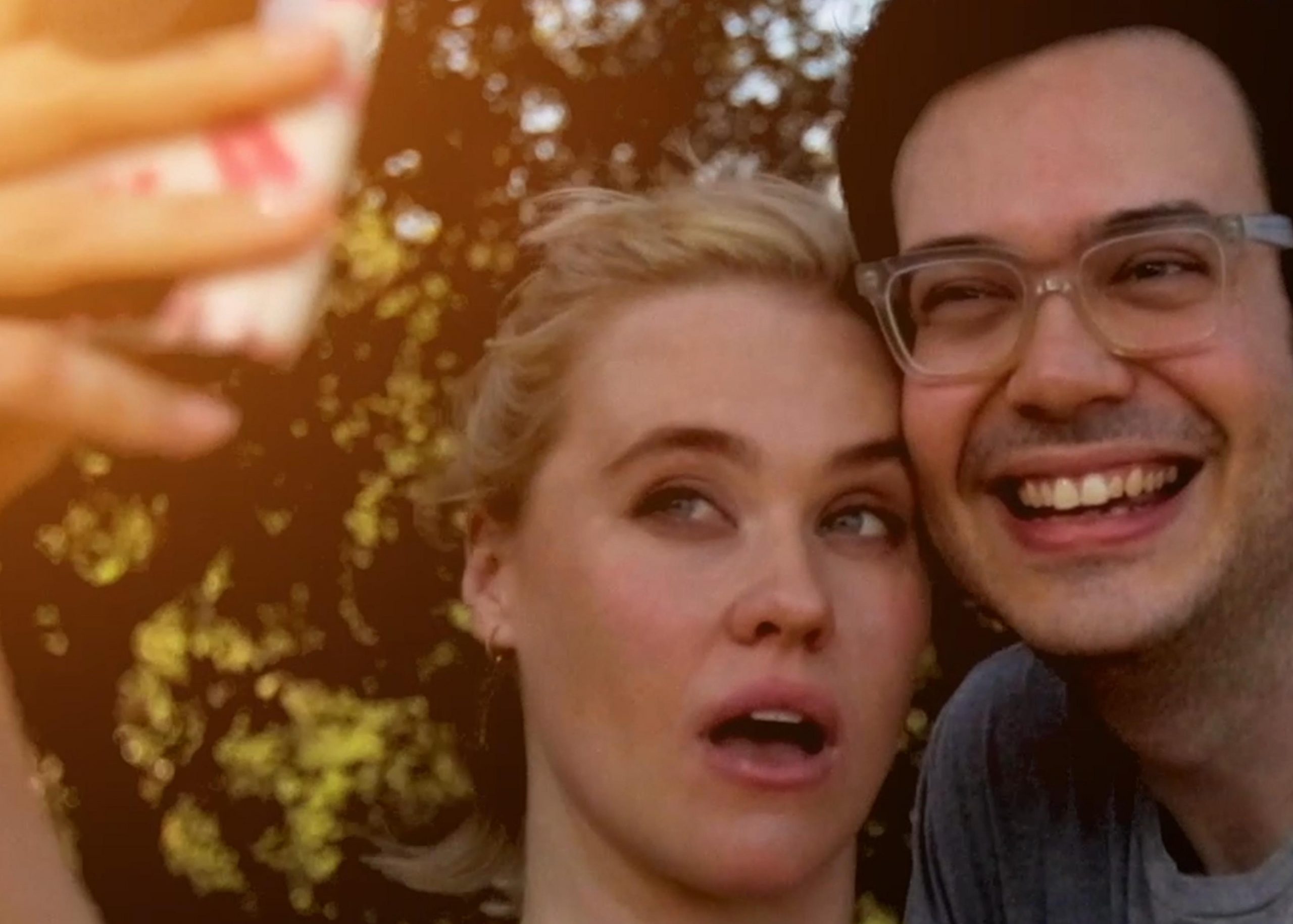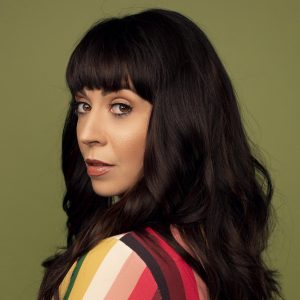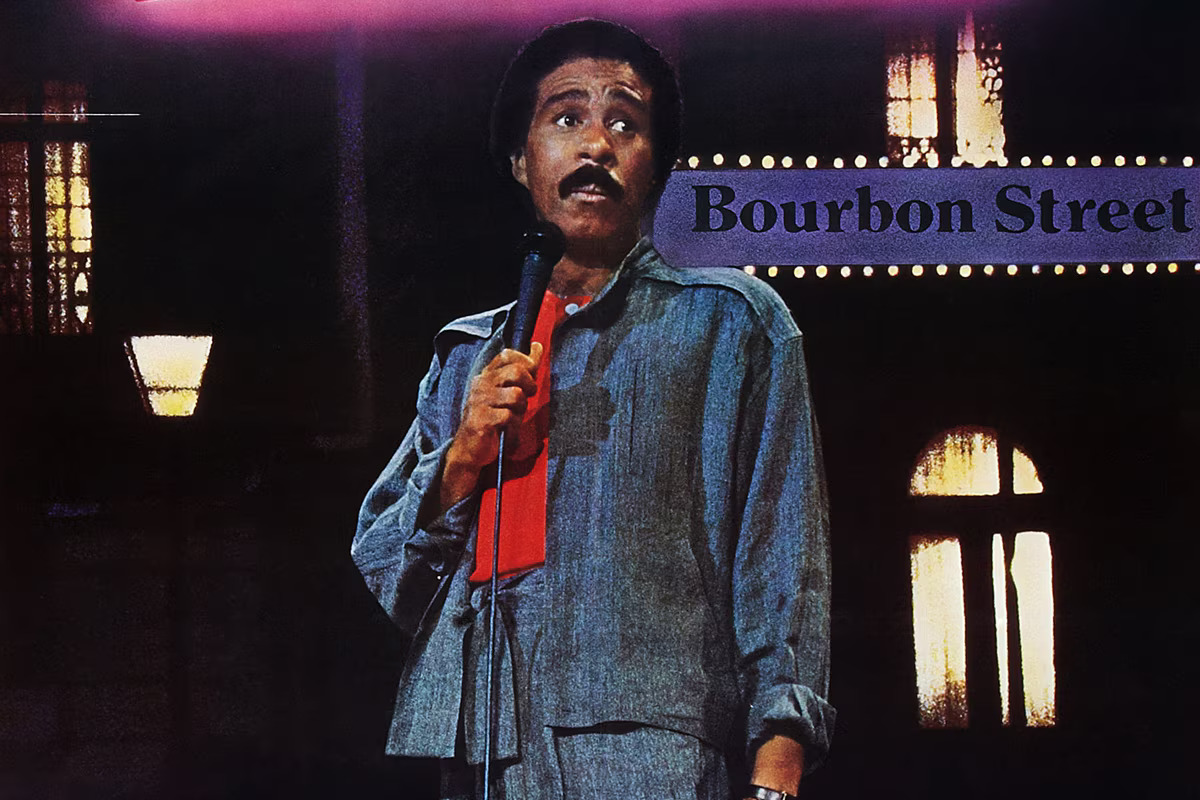
Chelsea Devantez spoke with Solzy at the Movies about her new short film, Basic, which starts screening at SXSW on March 14 in Shorts Program 3.
Devantez wrote, directed, and stars in the short film, which also stars Georgia Mischak and Nelson Franklin.
In light of SXSW being cancelled, the film will be going online as part of Short of the Week’s SXSW Shorts Week on March 19.

How excited are you that Basic was selected to screen at SXSW?
Chelsea Devantez: We are beyond thrilled to screen at SXSW, it was the one festival we hoped to get into. SXSW is known for choosing innovative, original, and elevated work that reflects the taste of modern audiences, and we’re honored to be a part of it.
When did you first get the idea for the film and how quickly did you write it?
Chelsea Devantez: I’d had this idea for a specific type of unreliable narrator for a while, but I didn’t have the story yet. Then there was a night when someone who shall not be named went through my Twitter feed and deep liked a tweet that was a year old. The whole film came to me right then and there. I wrote it that night, set up production the next day, and filmed it three weeks later.
Did you consider writing a longer short or did you feel that a three minute run time was the perfect length?
Chelsea Devantez: I considered writing a longer short, then I checked my bank account, and suddenly three minutes felt like the perfect length.
Basic marks your second short film as a director and the first since directing Barely Legal in 2015. Why the long wait?
Chelsea Devantez: Ooo! Great question, this makes me realize that as much as I think I’m posting online, I need to post about more of my shit, because I’ve actually self-produced, written and/or directed a project every year since 2010. Before Barely Legal, I directed a webseries called Misery and Company, then I did a pilot presentation called Stupid Bitch Syndrome, then a two-season Second City web series called Modern Women, then I directed a some sketches in a video group called It’s Megan, and THEN I directed Barely Legal, which was technically a pilot presentation. After that, I kept making TV projects and would shoot these long 7 minute sizzles that would help me pitch TV shows I wanted to sell. One was called Big in Europe. One was called Bad Vibes, and I flew a crew to Santa Fe and directed a project based on living in New Mexico and my mom’s healing communities. After that I shot a sizzle for a TV show with Ashley Nicole Black that we’re currently taking out, and I’m over the moon for that project. After we wrapped the sizzle with Ashley, I told myself that’s it, that’s the last fucking time I make something with my own money and shoot it in 1/10th the time we need with no production help and no pre-production support. And then four months later, I got the idea for Basic and was like FUCK. And I did it again and shot Basic, which is my first short film.
I thought I remembered you writing that Basic was your first short film and then got very confused after checked IMDB.
Chelsea Devantez: Ah yes! Someone put Barely Legal up on IMDB, I remember that now!
How did you go about casting the film?
Chelsea Devantez: When I wrote the film, I immediately pictured Georgia as the lead. She’s just so effervescent and radiant and the most joyful human, so to project anything negative onto her is inherently funny and it really made me laugh when I pictured her playing the role. She’s such a phenomenal actress and really expressive which was important. Then when it came to the male role, I instantly thought of Nelson, who funnily enough is Georgia’s real life husband. I met them both on the set of Abby’s, a show I wrote on that Nelson was in, and they are just divinely talented, hilarious, grounded, and truly kind people. I was so nervous to ask them to do it that I had to call my friend (and the AD of the short film, Kenzie) to give me a pep talk beforehand.
What was the most challenging part of the production?
Chelsea Devantez: I once did a Kickstarter to raise 3k for a thing I wanted to shoot. But it really stressed me out and I didn’t grow up with money so I had a real complex about all these people donating and how much it slowed down the project for me. After that, I promised myself I would always find a way to fund it myself. It’s been phenomenal—people often bloat productions and over write the story, but when you’re paying for it all, you really learn what you actually need to get something done. It helped me always write with my directing and producing brain on, and it made me more innovative as a director. That said, even though I’m now a TV writer and have a paycheck to fund my own stuff and most importantly, pay everyone, we still never have any money to shoot. So the crew for Basic was 4 people total, including me. Kevin Walsh and I had been on our first improv team, he made a sizzle with me earlier this year and I loved producing and editing with him. He edited and produced the previous project, but mentioned if I wanted to do anything again that he might be able to be the Director of Photography with all he’s learned over the years. I love how his mind works and for me, directing something I’m also in means I have to trust the DP with my whole heart, so I was really excited at this prospect and we just went for it. It turned out incredible and what was the best part, having a small crew, was also the most challenging. Kevin and I did test shots of everything before we shot it and really worked the pieces out, but at the end of the day it was Kevin setting up the lights, and the camera, and the sound, and me directing and trying to act and improvising but also ordering dinner for everyone and checking our shot list. It was extremely challenging making the film with only three people, (Kevin Walsh, Kelly Reilly, and Kenzie Elizabeth) but that’s also why it turned out so great, because there was no one else to answer to, or get in our way.
We met four years ago at The Second City. What’s the biggest teaching that you’ve taken away from the comedy institution and have taken with you throughout your career?
Chelsea Devantez: That short form makes you an incredible writer and it’s dumb to think it’s dumb. That improv training, as much as it’s fun to shit on, will help you so fucking much in this career—it’s mind blowing. That improv training, as amazing as it is, does not make you a writer and you need to learn structure and formatting and how to write jokes. That the people next to you in class matter more than anyone. More than your teachers, mentors, the actors in the building or the famous people you look up to. There is no one more important than the friends you meet doing this work and they will be why your heart survives in this career, and the key to making work you actually care about.
Similarly, what’s the best advice you give to anyone thinking of making the leap from Chicago to Los Angeles?
Chelsea Devantez: Make your own work. It’s the answer for how you get an agent, how you get a writing job, and how you stay happy in a career that’s known for destroying your emotional core. No matter what it is that you do, and even when you have a job on someone else’s thing, always make your own work!!!!! And side note, never let money stop you, you can do so much with so little.
Aside from screening your film, is there anything you’re looking forward to doing during SXSW?
Chelsea Devantez: I can’t wait to see the other films, attend a million climate change panels, and drink enough so that the white diamond studded boots I’m going to wear don’t hurt.




